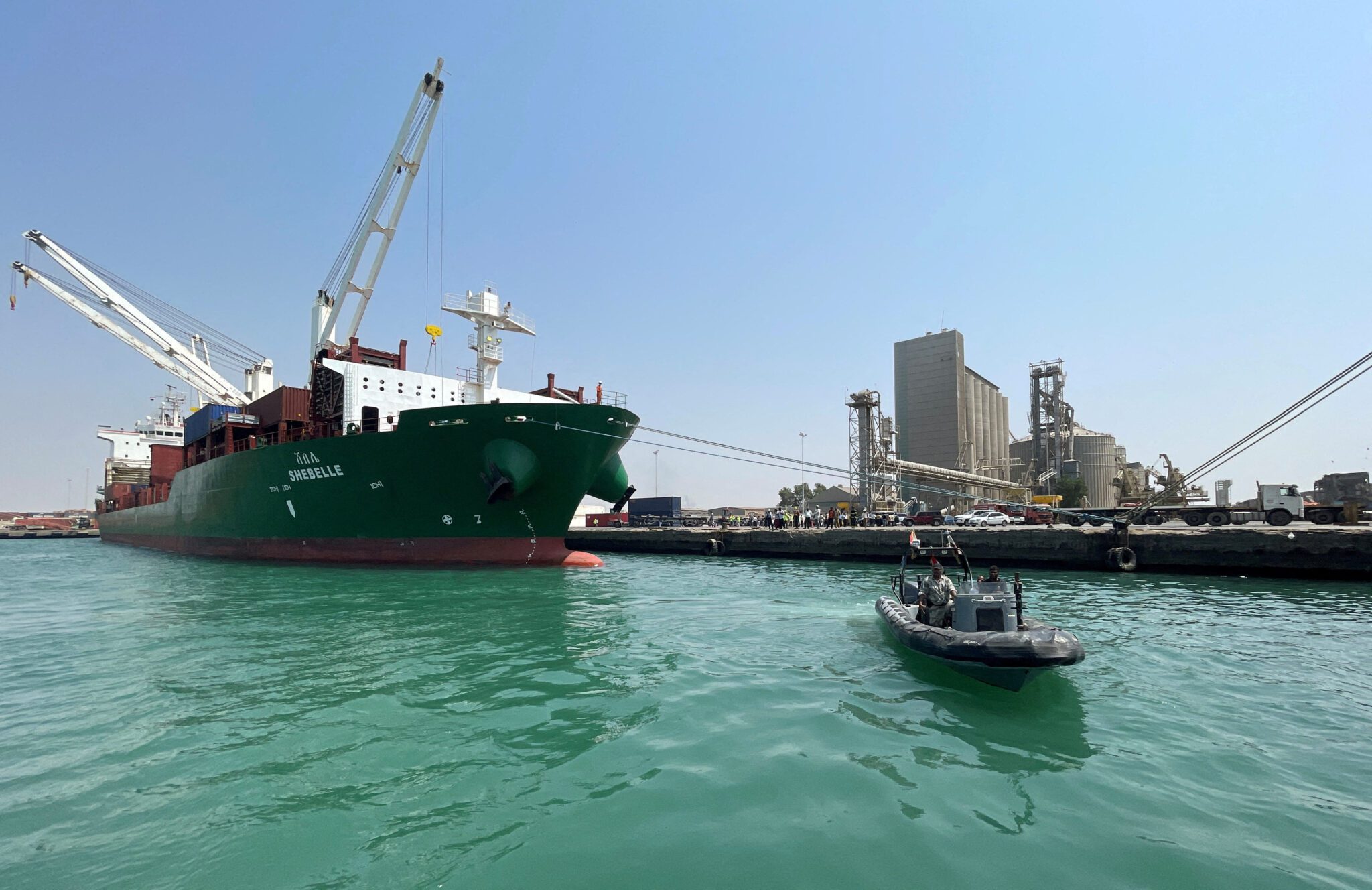HODEIDAH, Yemen, Feb 26 (Reuters) – A container ship carrying general commercial goods docked at Yemen’s main port of Hodeidah for the first time since at least 2016 on Saturday as parties in Yemen’s eight-year war are in talks to reinstate an expired U.N.-brokered truce deal.
The conflict, which pits a military coalition led by Saudi Arabia against the Iran-aligned Houthi group, has divided Yemen and caused a humanitarian crisis that has left 80% of the 30 million population needing help.
Read Also: A Deep Dive Into Shipping And Famine
Goods arriving at Hodeidah have to be vetted by a U.N. body established to prevent arms shipments from entering Yemen. In the past seven years, Djibouti-based UNVIM has given approval only to ships carrying specific goods like foodstuffs, fuel and cooking oil.
Read Also: U.S. Navy Seizes More Than 2,000 AK-47’s from Fishing Vessel in Gulf of Oman
An official in the internationally recognised Yemeni government told Reuters granting access to commercial ships was a trust-building step aimed at supporting Saudi-Houthi talks to reinstate the truce, which expired in October.
Port officials said the SHEBELLE, which according to ship tracking data is an Ethiopian-flagged general cargo ship, was given clearance by United Nations inspection body, the Verification and Inspection Mechanism for Yemen (UNVIM).
“The mechanism previously only provided clearance for specific shipments but now UNVIM is granting clearances for all kinds of shipments to Hodeidah port,” said Muhammad Abu-Bakr bin Ishaq, head of Houthi-run Red Sea Ports Corporation.
He did not say what cargo the ship was carrying.
He told Reuters increased flow of goods into the western port would reduce transportation costs for products, given most were entering via government-held Aden port in the south.
UNVIM did not immediately respond to a Reuters request for comment. The spokesperson for the Saudi-led military coalition that patrols the waters off Yemen did not respond.
Reuters saw three container vessels docked on Saturday.
The military alliance intervened in Yemen in March 2015 after the Houthis ousted the Saudi-backed government from the capital, Sanaa.
Djibouti-based UNVIM, which began operations in May 2016, was set up as the coalition accused the Houthis, de facto authorities in North Yemen, of smuggling Iranian arms. The Houthis and Tehran deny the charges.
Direct talks between Saudi Arabia and the movement, facilitated by Oman, are parallel to U.N.-led efforts to restore the truce, which has largely held, establish a formal ceasefire and launch inclusive political negotiations.
The war has killed tens of thousands of people, destroyed Yemen’s economy and left millions hungry. The Houthis say they are fighting a corrupt system and foreign aggression.
(Reporting by Khaled Abdullah and Adel Al-Khadher in Hodeidah and Mohammed Alghobari in Aden; Writing by Ghaida Ghantous; Editing by Raissa Kasolowsky)

